Ditch these 12 dietary supplements and eat THESE foods instead
Worth the money?
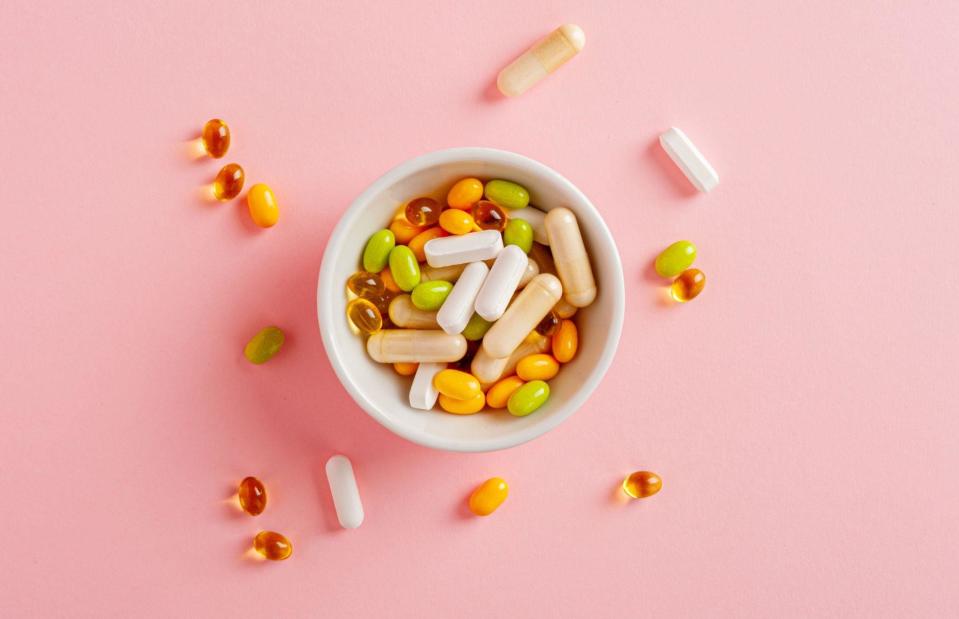
Artem Stepanov/Shutterstock
Research suggests that many supplements offer little protective effect, could have a negative impact on our bodies’ delicate balance and can even make us more susceptible to health problems. To help you stay nourished in the tastiest possible way, we asked a registered nutritionist for her take on which supplements can be ditched in favour of whole foods.
Read on to discover the supplements you really don't need – and what to eat instead for a nutrient boost.
Know your nutrient needs
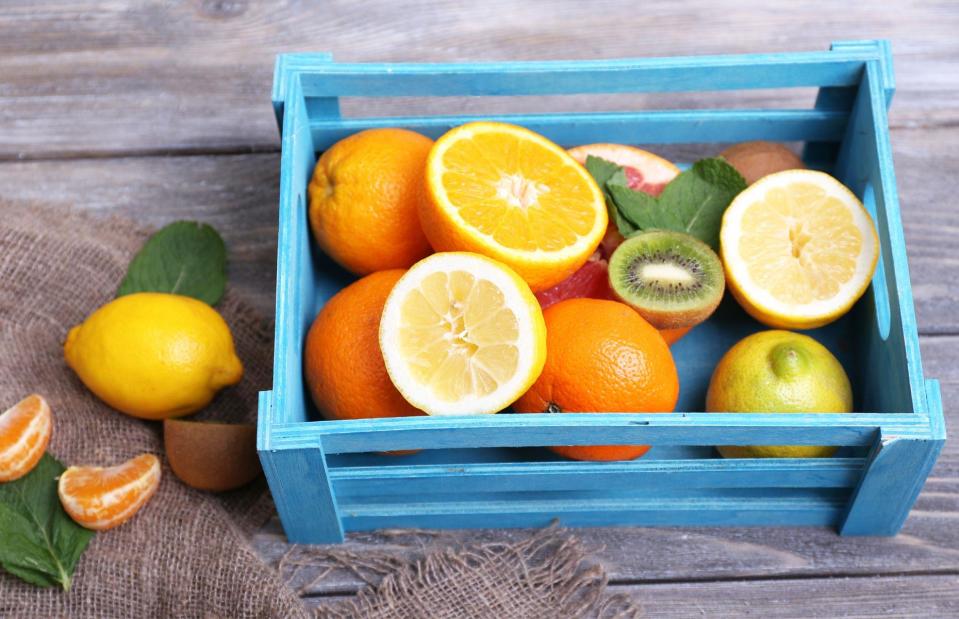
Africa Studio/Shutterstock
Of course, although evidence suggests many supplements are an unnecessary expense, there are some instances where supplements are considered the best way to safeguard our health. Vitamin D, for example, is widely recommended by public health bodies around the world – and supplementing key nutrients is considered best practice for groups such as pregnant women, older adults and people living with long-term conditions. Always follow your health provider's advice, especially if diagnosed with a deficiency (such as iron).
Biotin
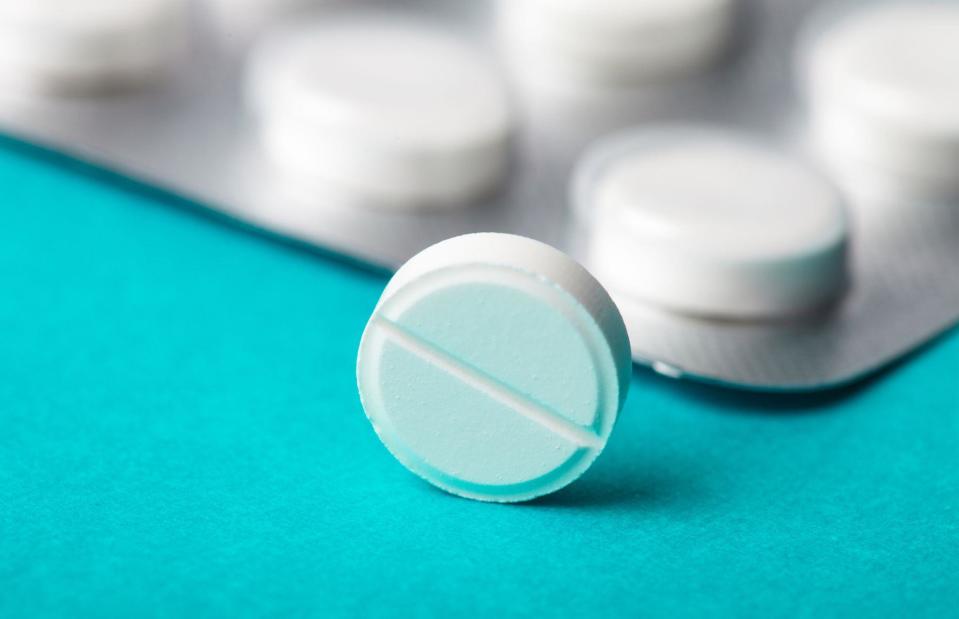
Oksana Shufrych/Shutterstock
"A popular supplement that jumps out to me as unnecessary is the high-strength biotin people take for hair loss," says registered nutritionist VJ Hamilton. A nutrient that’s produced by normal gut microbes (and which can be found in many foods), biotin supports healthy hair and nails. "If you're deficient in biotin, you need it – but I suspect that the amount that's in some of these supplements is doing more harm than good. Biotin helps with protein synthesis, but if you're protein deficient, there's no benefit in taking biotin supplements. I think a lot of dermatologists are wary of these products too."
Biotin: a natural source
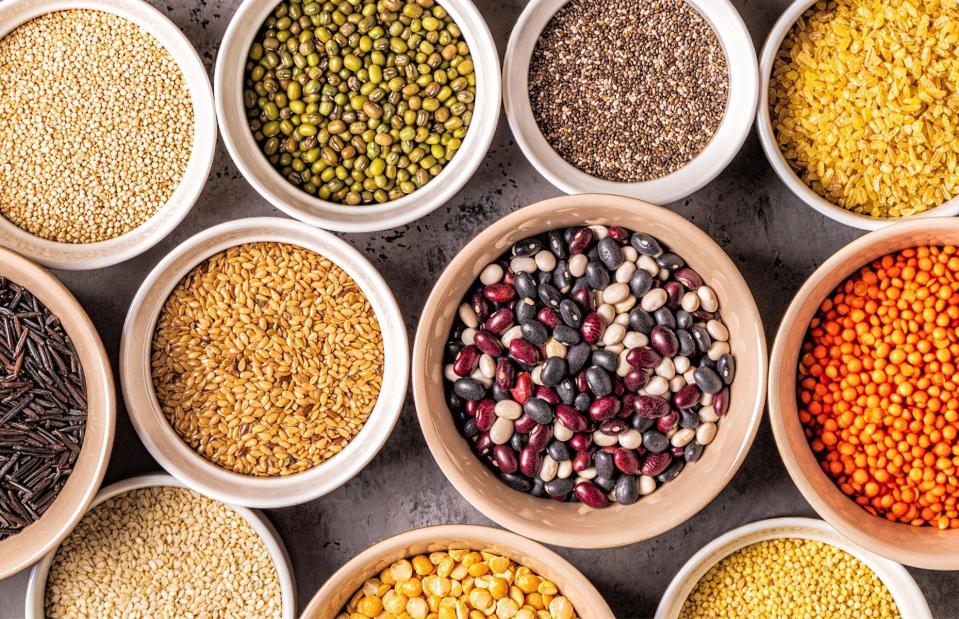
Tatiana Bralnina/Shutterstock
Biotin is a naturally occurring B vitamin – so if you're worried about your hair and nails but would like to swerve spending money on expensive (and possibly ineffective) supplements, the good news is that you can find it in plenty of the foods you need for a normal balanced diet. Foods that are particularly rich in biotin include nuts, legumes, whole grains, unpolished rice and egg yolks. Liver and sweet potatoes are also really good sources.
Caffeine
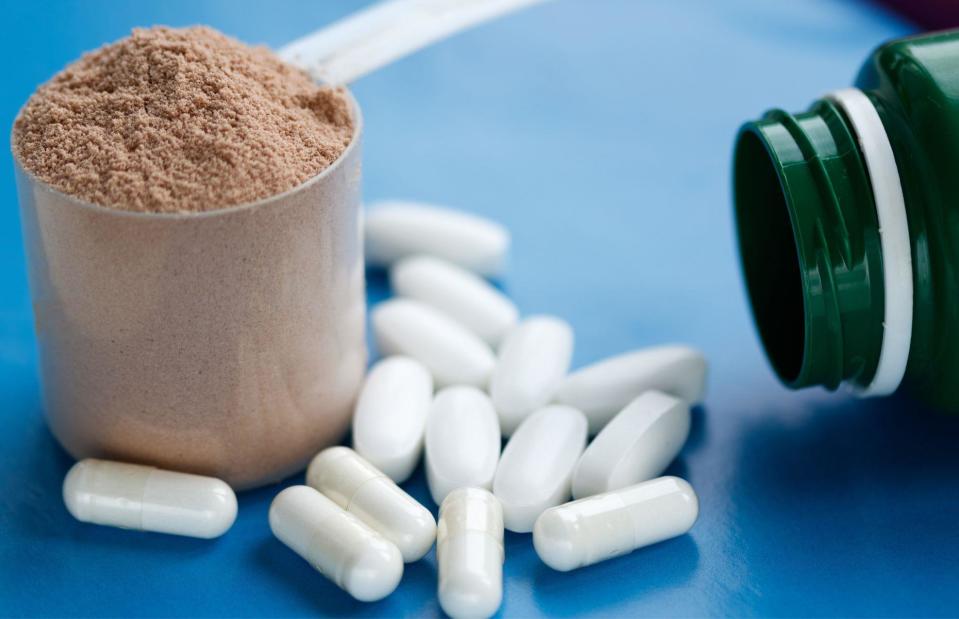
ALEXVP/Shutterstock
We're all familiar with caffeine in coffee or cola, but this stimulant is turning up more and more regularly in so-called ‘functional drinks’. "Right now, there's a trend for pre-workout supplements that are loaded with caffeine," says VJ. "I've experienced people who've been shaking so badly they've been to the doctor about it; actually, it's just been caused by the level of caffeine that's in these products. Coffee can be helpful to reset jet lag and can support gall bladder function as well, but taking high-strength caffeine? I can't think of any reason why that would be helpful."
Caffeine: a balanced buzz
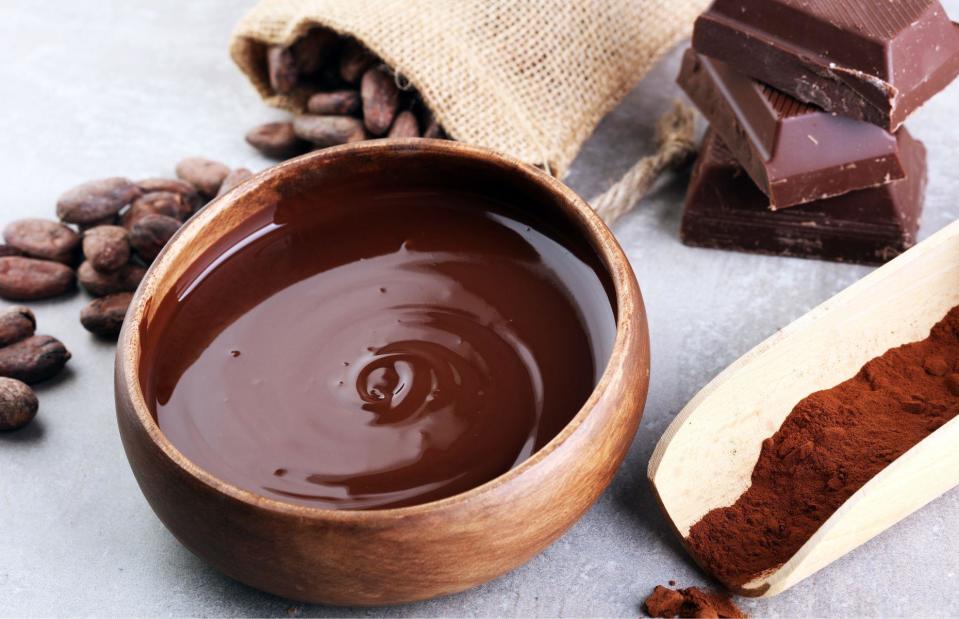
beast1/Shutterstock
We associate it with coffee, but caffeine is actually found in 60 species across the plant kingdom – and humans have been using it to put a spring in their step since around 1000 BC. The most potent natural sources we might encounter in daily life include chocolate-covered coffee beans, or shots of espresso. But while our bodies can develop a tolerance to the nerve-jangling impacts of too much coffee on our nervous system and brain, gentler sources like dark chocolate may be enough to give us the edge we need.
Calcium
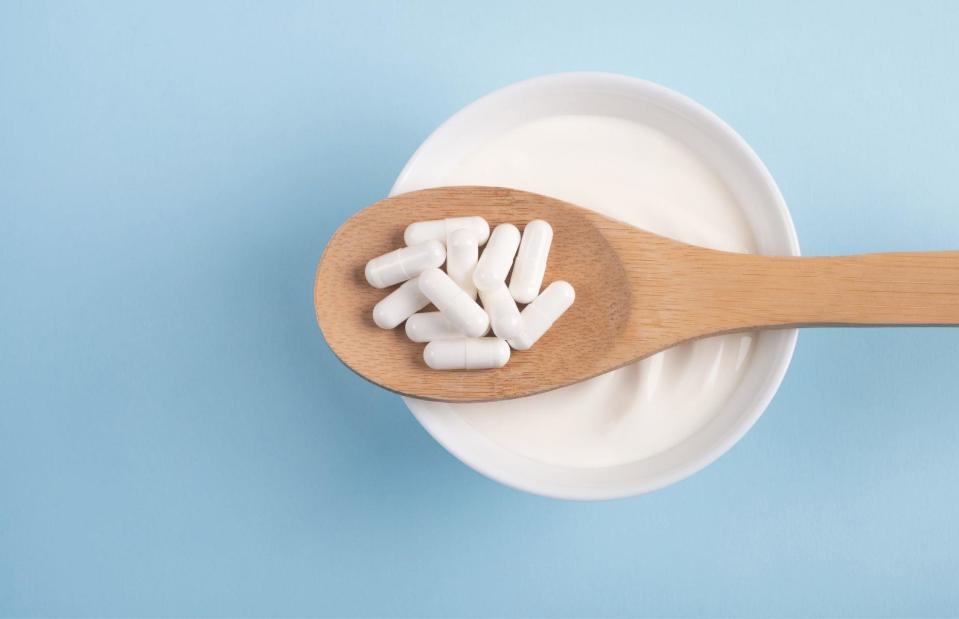
Helena Nechaeva/Shutterstock
Calcium is essential for our bones and teeth, our muscles and even our nerves. "People often take calcium supplements if they have osteoporosis," says VJ. "But ordinarily the underlying problem is that calcium isn't getting into the right place, and that's dependent on vitamins D and K2." Excess calcium can cause us issues, too. "Just taking high-strength calcium can displace other minerals – magnesium, for example. That's the problem I have with supplements; people take vitamins, probiotics and minerals lightly, but they can cause a lot of imbalances in the body."
Calcium: tastier alternatives
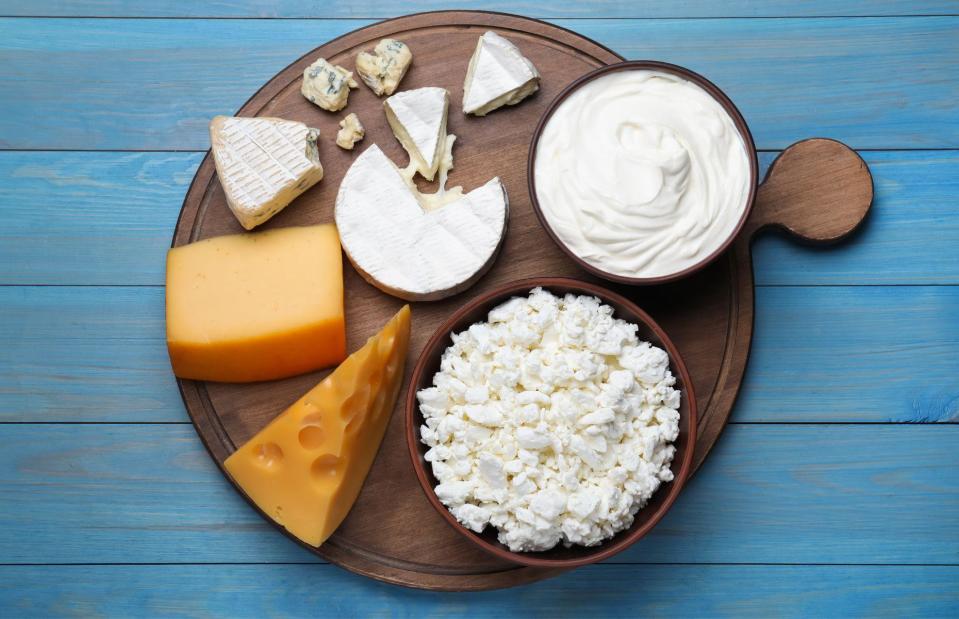
Helena Nechaeva/Shutterstock
Milk, cheese and yogurt are all good sources of calcium that we can enjoy daily – and leafy green vegetables are another nutrient-rich option. "When you're getting your calcium from within foods, the vitamins and minerals are much more synergistic," says VJ. In other words, they work more effectively together. "I recommend sardines, which have calcium in the small bones and also contain Omega-3s and anti-inflammatory nutrients, including vitamin D, which is going to help get the calcium in the right place."
Collagen
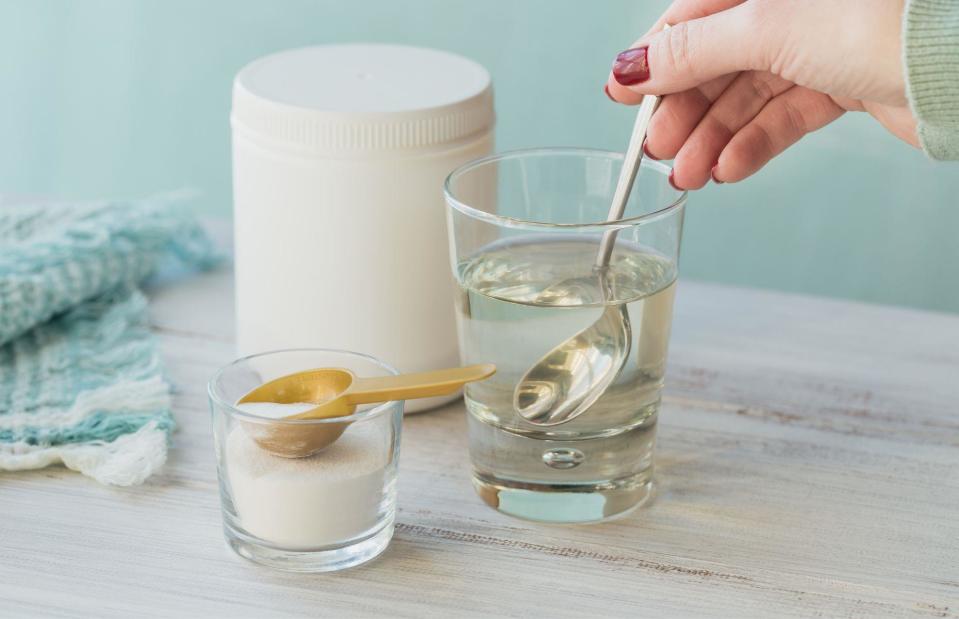
Svittlana/Shutterstock
Unless you've been living under a rock, you'll know that collagen pills and drinks have become popular in the fight against aging. This special form of protein crops up all over the body; it's in our skin, nails, hair and bones. While our bodies can produce collagen, supplements promise to turbocharge our supply so we can generate plumper skin and thicker hair. The problem is that no studies have proven that our bodies can use oral forms of collagen in this way.
Collagen: delicious and nutritious
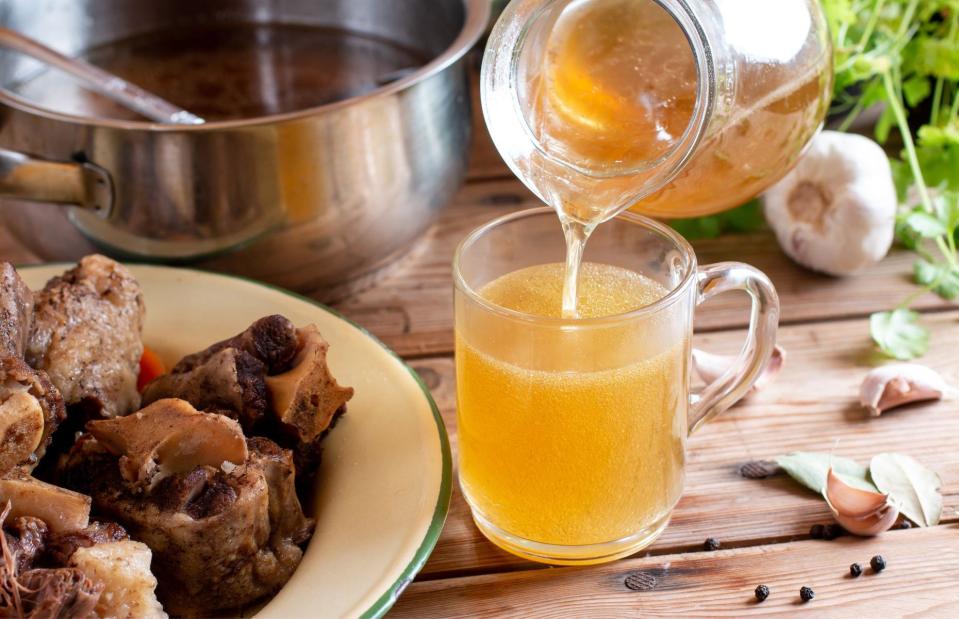
Julia Ahanova/Shutterstock
While we don't know for sure whether supplements can boost our youthful good looks, we can enjoy food containing the amino acids that form the building blocks of collagen. Eggs, fish, poultry and meat are rich in these collagen-creating ingredients, while legumes, including soybeans, are good plant sources. The quest for collagen could also be a great excuse to enjoy delicious bone broths, slow-braised cuts of beef and bony fish, all of which are good sources of the protein – though they may or may not contribute to our own collagen levels.
Fish oils
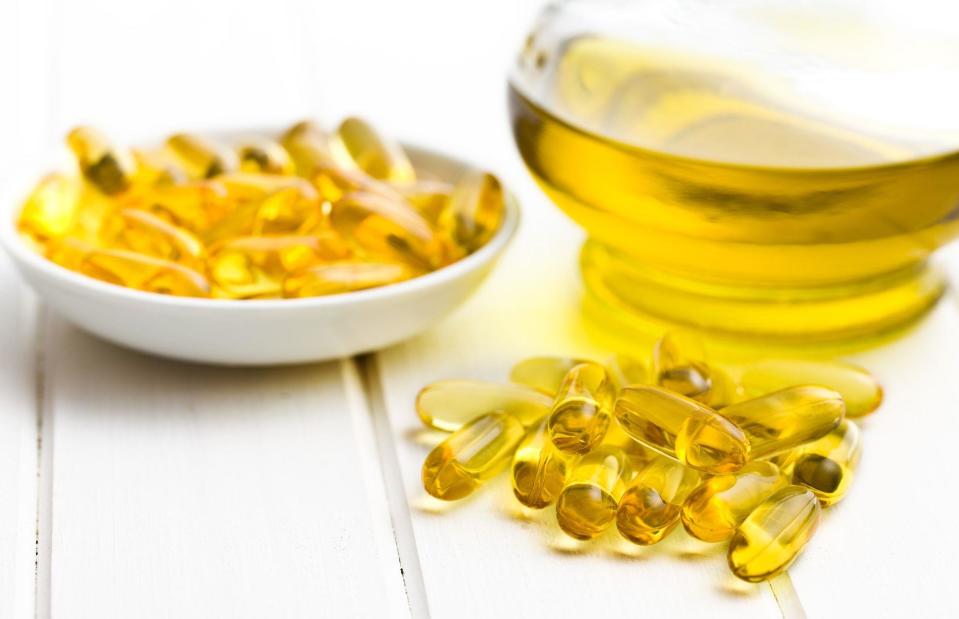
Jiri Hera/Shutterstock
There are plenty of fish oils on the market, most of them carrying Omega-3s: super-powered fatty acids that help reduce the inflammation that can cause heart disease, stroke and so many other health problems. "A lot of people don't eat fish, in which case I recommend a fish oil supplement because those Omega-3s are so vital," says VJ. "But the truth is that a lot of these oil products are rancid, which can actually cause oxidative stress and inflammation in the body." VJ also points out that striking a healthy balance of oils is hard if you're taking one particular supplement routinely.
Fish oils: a different way

Dabyki.nadya/Shutterstock
A more delicious and, arguably, nutritious way of packing in those essential Omega-3s is to enjoy an abundance of natural sources, including grilled mackerel, tuna steaks and salmon fillets. These fabulous fish deliver the nutrient in a form our bodies can easily use, along with a great portion of protein. For those following plant-based diets, flaxseeds, chia seeds and walnuts are also good places to look for Omega-3s, and they're packed with other micronutrients your body will thank you for.
Garlic
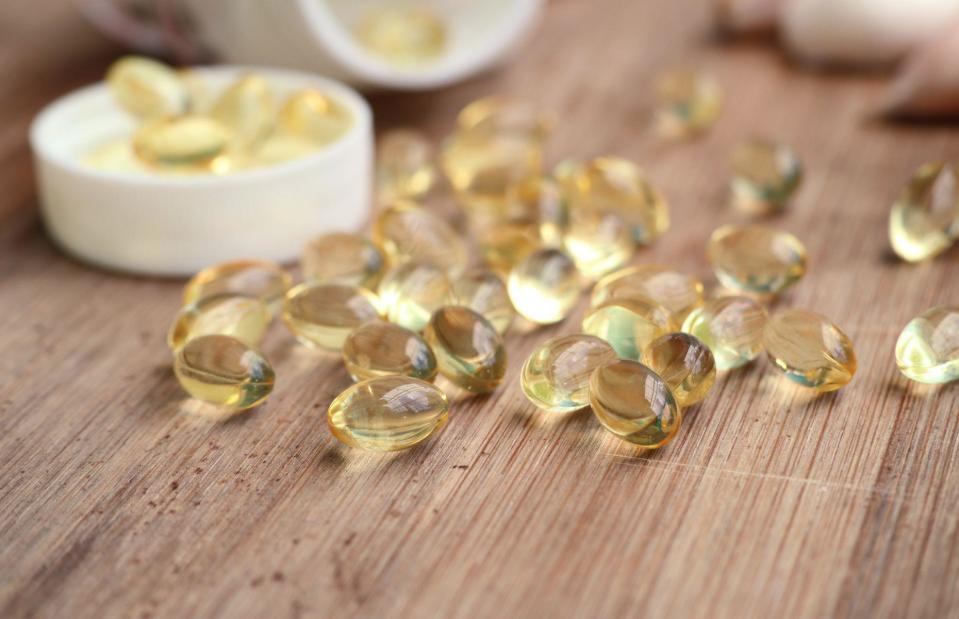
Thanthima Lim/Shutterstock
The transformative ingredient in many a delicious dish, garlic's use as a health-boosting ingredient goes back as far as historical records can take us. In fact, research shows that this wonder plant can fight bacteria, lower blood pressure and protect the liver. For those who are put off by the bulb's pungent aroma, in particular the way it lingers on the breath, garlic capsules offer an alternative. But do they work? Research findings are very mixed; some suggest marginal benefits when it comes to blood pressure. However, in cancer trials, the most promising results have involved raw garlic.
Garlic: a food-first approach
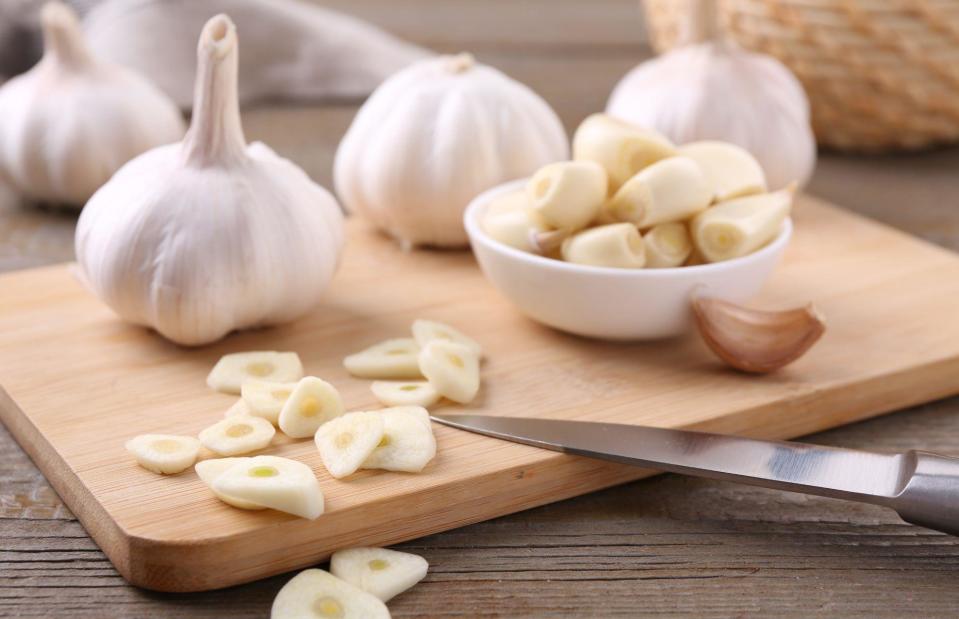
New Africa/Shutterstock
The great thing about boosting garlic in your diet is the holistic benefit the plant can bring you. Like its cousins, leeks and onions, garlic is a powerful prebiotic; its fibres are feasted on by our gut microbes to create more healthy and diverse populations that protect health. To benefit most from garlic, enjoy it chopped or crushed to maximise the active compound allicin – and add it towards the end of cooking to prevent heat from depleting its properties.
Melatonin
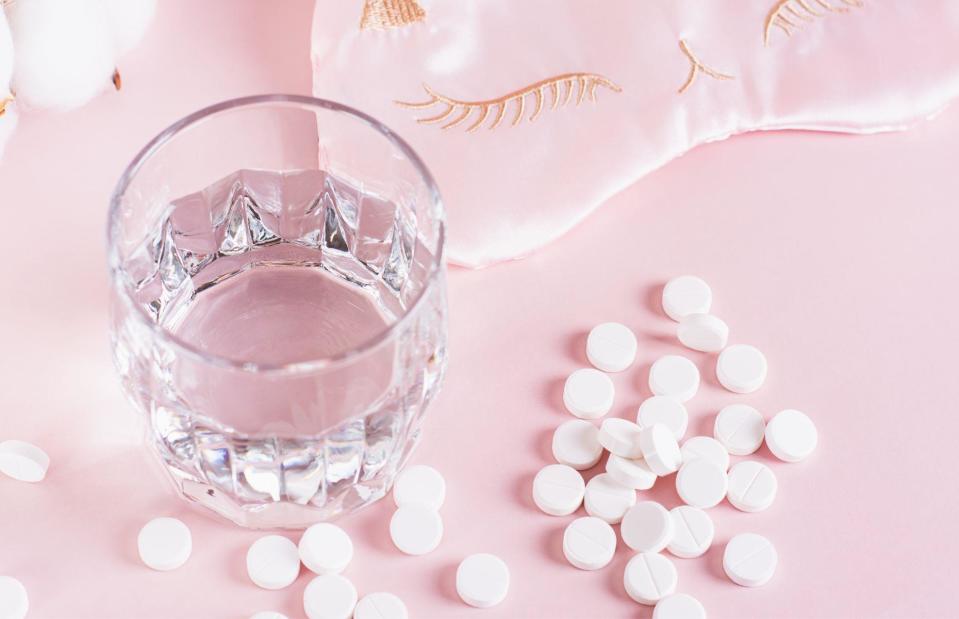
Rui Elena/Shutterstock
The importance of sleep has never been so apparent – so naturally, interest in the sleep-promoting hormone melatonin is growing. In some parts of the world, including the UK, Europe and Australia, it's a prescription-only drug, but it's easily available to most. "I'm not really for supplementing melatonin at all," says VJ. "Some people have good results using it for jet lag, but it helps you get to sleep, not stay asleep, which is most people's problem. There's a fine balance of hormones and neurotransmitters in the body, so you don't want to be tipping that off balance by just taking one thing."
Melatonin: eat for sleep
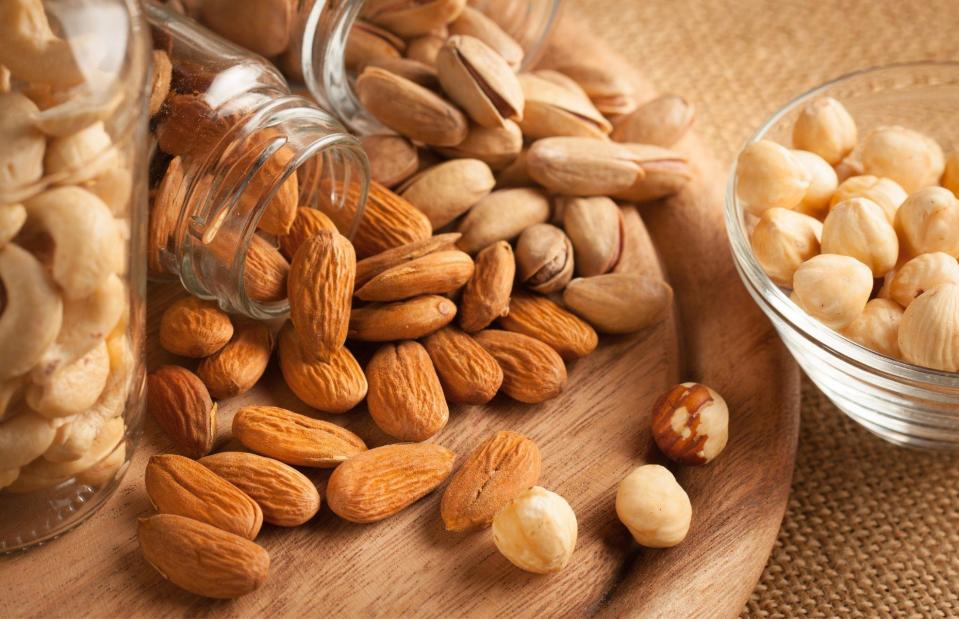
Xan/Shutterstock
While melatonin supplements may be a good option for those with a diagnosed deficiency, the rest of us can boost our levels in a simpler way by focusing on dietary sources. Eggs and oily fish are good options for omnivores wanting to get more melatonin into their diet whilst gaining protein and a host of micronutrients at the same time. Meanwhile, nuts – specifically almonds and pistachios – and mushrooms are good plant sources that also bring a host of other health benefits.
Multivitamins
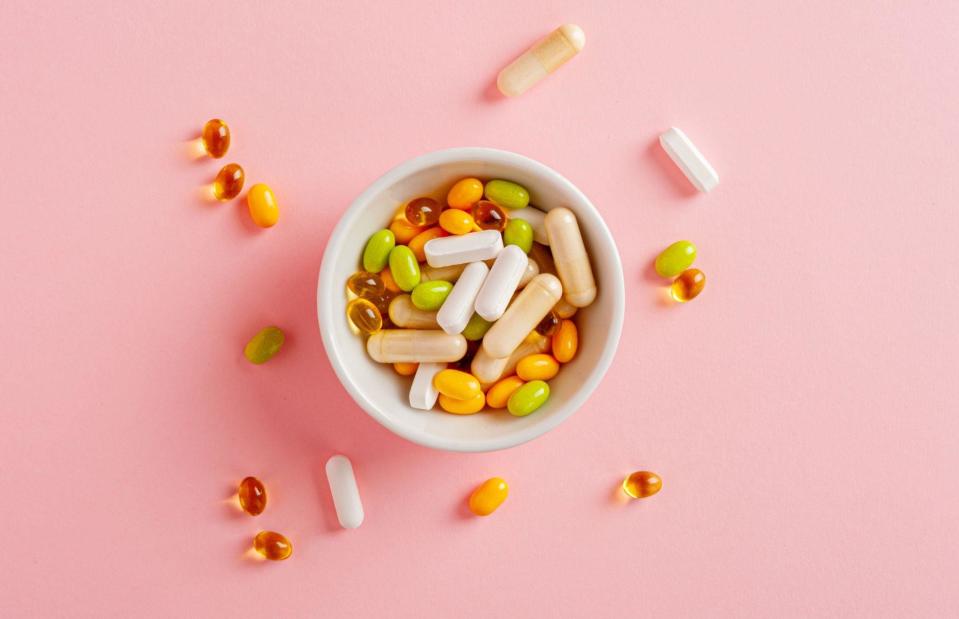
Artem Stepanov/Shutterstock
They're the supplement we're most likely to take – and they make millions each year for the nutraceuticals industry – but do multivitamin tablets actually do anything? Researchers at John Hopkins University don't think so; their research found no positive impact on risk of heart disease or cancer. They also discovered that long-term use had no effect on the risk of mental decline; they noted that a healthy, varied diet is backed by much stronger evidence.
Multivitamins: eat a rainbow
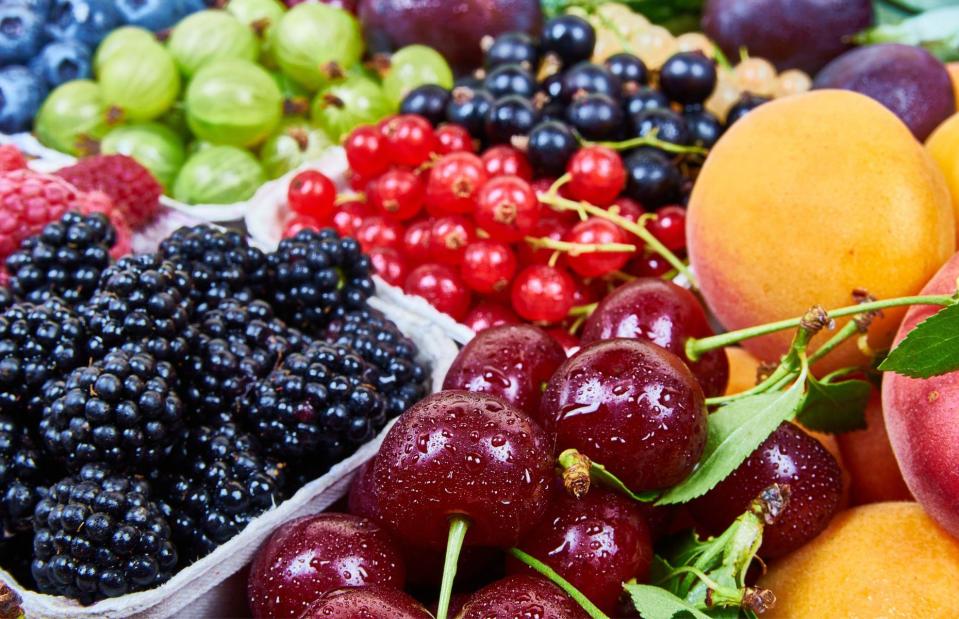
Krzycho/Shutterstock
Nailing a really nourishing mix of nutrients isn't as convenient as downing a pill, but it could be much more beneficial to your health – so it's worth working at. Aiming to eat fruit and vegetables in a varied spectrum of colours is a good start. The natural pigments that create red, blue and purple colours are called anthocyanins, and they're linked with reduced inflammation, lower blood pressure and many more outcomes that really benefit our overall health.
Probiotics
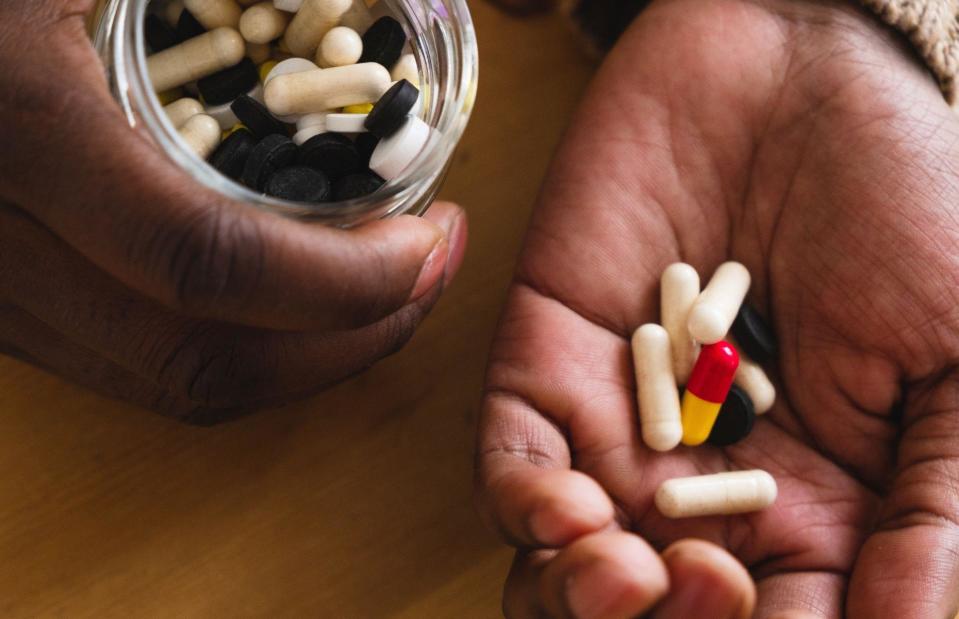
PERO Studio/Shutterstock
The mind-blowing impacts of our bodies' microbial populations on our health are becoming more and more apparent, so supplements that promise to boost our healthy bacteria are big business. You'll find a wide range of tablets on the market, but if you're looking to get benefits from probiotics, it's best to look at food sources. "I see some people clinically who are taking probiotic supplements routinely and that's creating dysbiosis [a bacterial imbalance]. So, if you're just taking them without understanding why, they can cause more harm than good," says VJ.
Probiotics: try live foods
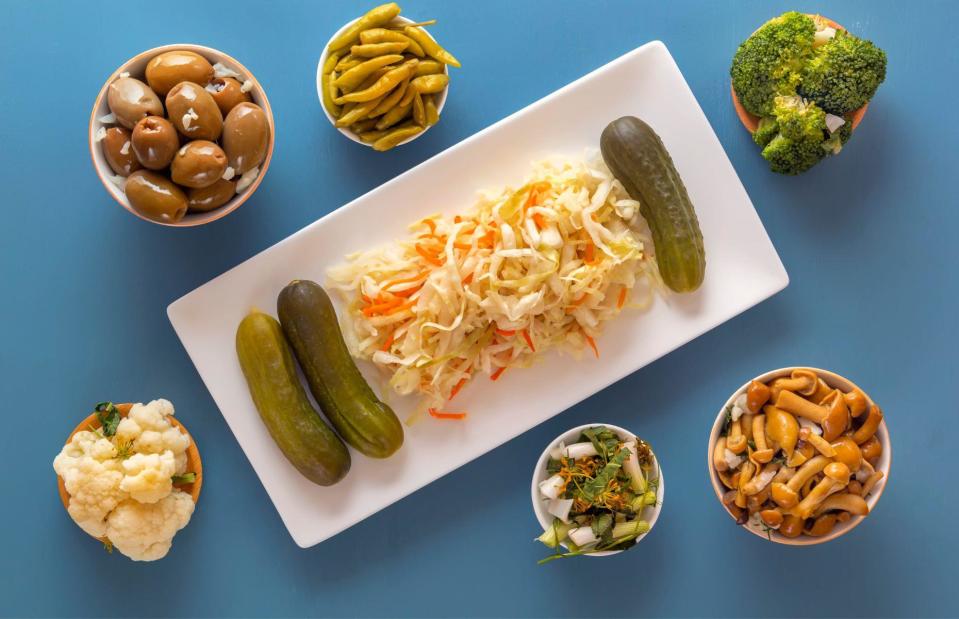
Alexey_Arz/Shutterstock
From kimchi to sauerkraut and from yogurt to pickles, there are so many delicious foods that are supercharged with helpful live microbes thanks to a natural, and ancient, fermentation process. "You don't need to eat a lot of naturally probiotic foods to help with your growth of beneficial bacteria," says VJ. "These gut microbes feed on polyphenols – nutrients from dark-coloured fruits and vegetables – and high-fibre foods." You'll find these gut-helpers naturally occurring in a whole host of whole foods. "That's a much better way to be feeding your microbiome than supplements," VJ adds.
Protein
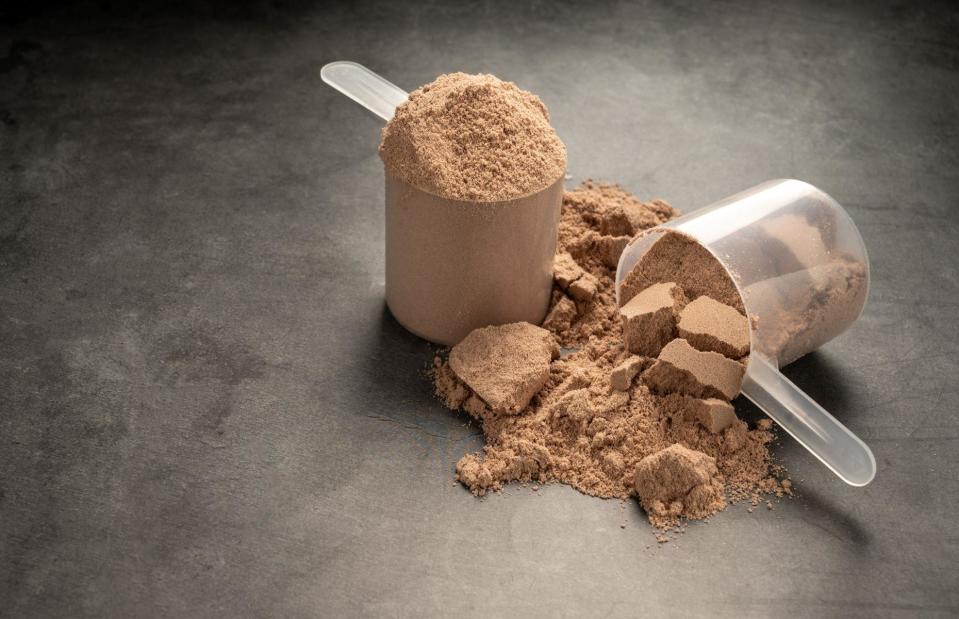
Erhan Inga/Shutterstock
Our need for protein has shot up the health agenda, as more of us have become aware of the role it plays in building muscle and powering the body's functions. And since we can't store protein, supplement powders, shakes and bars have emerged as a convenient way to keep ourselves topped up. However, these meal replacements are full of additives and sweeteners. "I work a lot with people with autoimmune conditions, and these products can cause real flare-ups. If you do want to use a supplement, choose a more natural powder with a maximum of two or three ingredients in it, from a pea or hemp source."
Protein: a diet-based approach
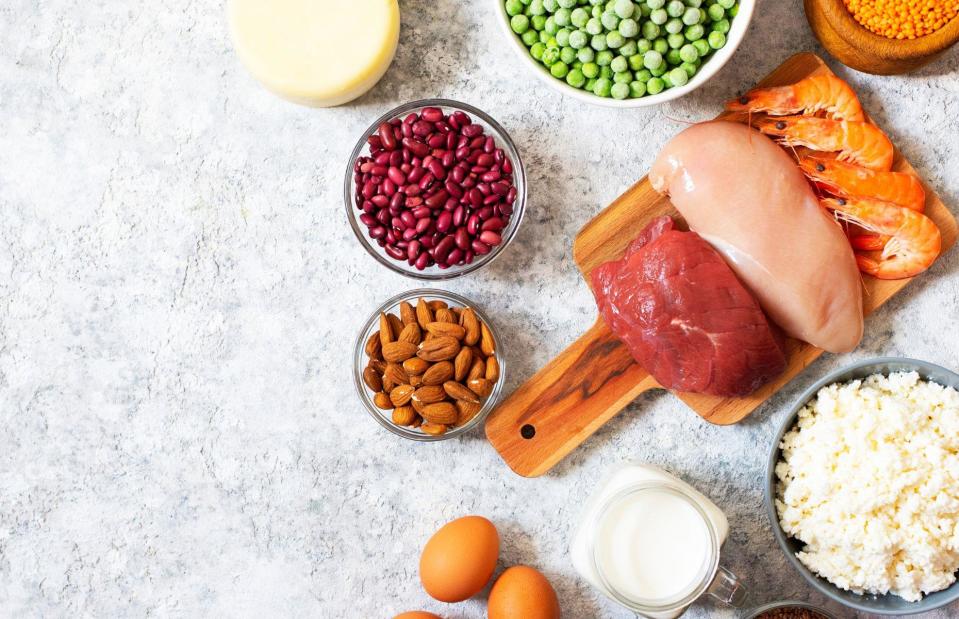
DariaKM/Shutterstock
Good sources of protein form the building blocks of all of our global cuisines – so whether you put eggs, tofu, chicken, seafood or lentils at the centre of your diet (or better still, all of them!), there are so many easy ways to meet your requirements. "I think we can definitely get the protein we need from our own diets," says VJ. "If you're a vegetarian or vegan, just make sure to stay aware of the proteins you're getting from legumes and grains; it's not as easy without meat, fish and dairy."
Selenium
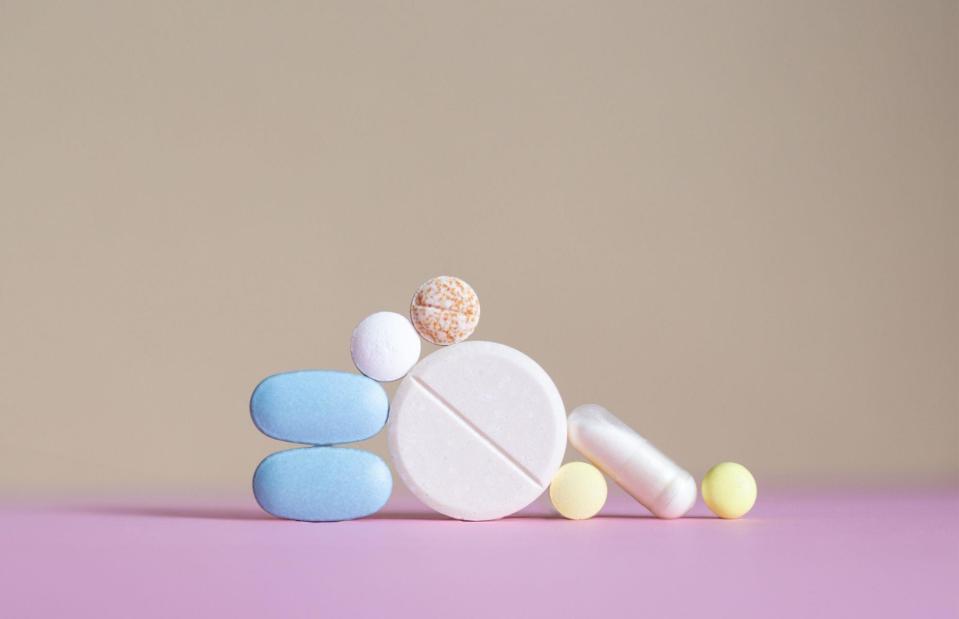
Elena Chevalier/Shutterstock
Another trace mineral with a healthy presence in the supplements aisle, selenium is involved in all sorts of bodily functions, from reproduction to fighting infection. Our bodies don't produce selenium; instead, it arrives in our diet via the soil where our foods are grown (leading some nutritionists to worry about how depleted soils might impact our health). While deficiency is linked with thyroid problems, low fertility and more, research shows that getting too much through supplements can raise cholesterol.
Selenium: an easy fix
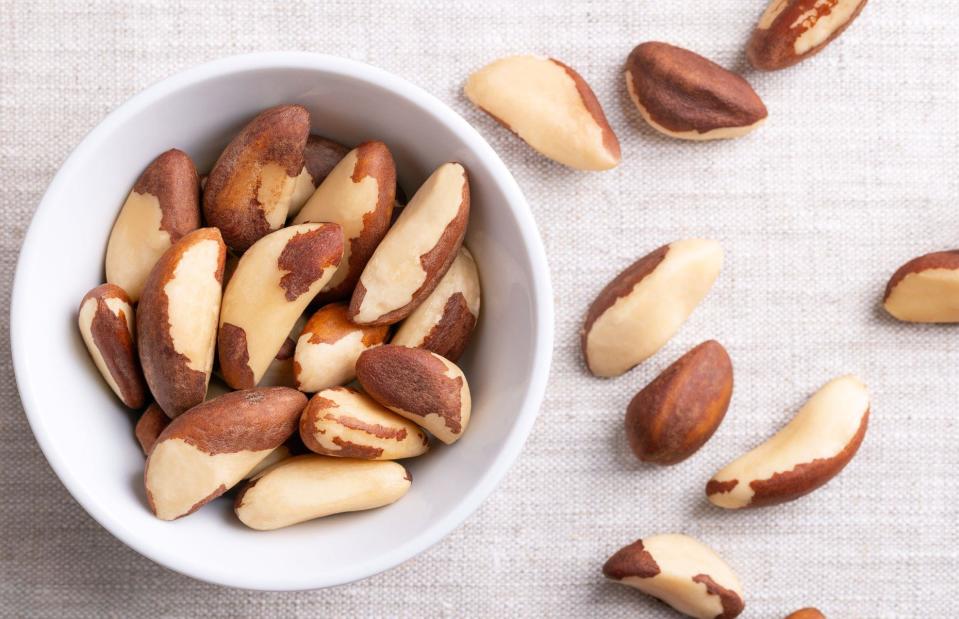
Peter Hermes Furian/Shutterstock
The good news is that it's hard to get too much selenium from a healthy diet alone – and you'll find it in a host of foods you probably love. Steak, turkey, chicken and tuna are popular sources, and it's also worth mastering the cooking of beef liver to get a good healthy dose of selenium and many more essential nutrients. Not convinced? Eating just two Brazil nuts a day will help you hit your recommended daily intake while serving you healthy fats, fibre and a great balance of other vitamins and minerals.
Vitamin C
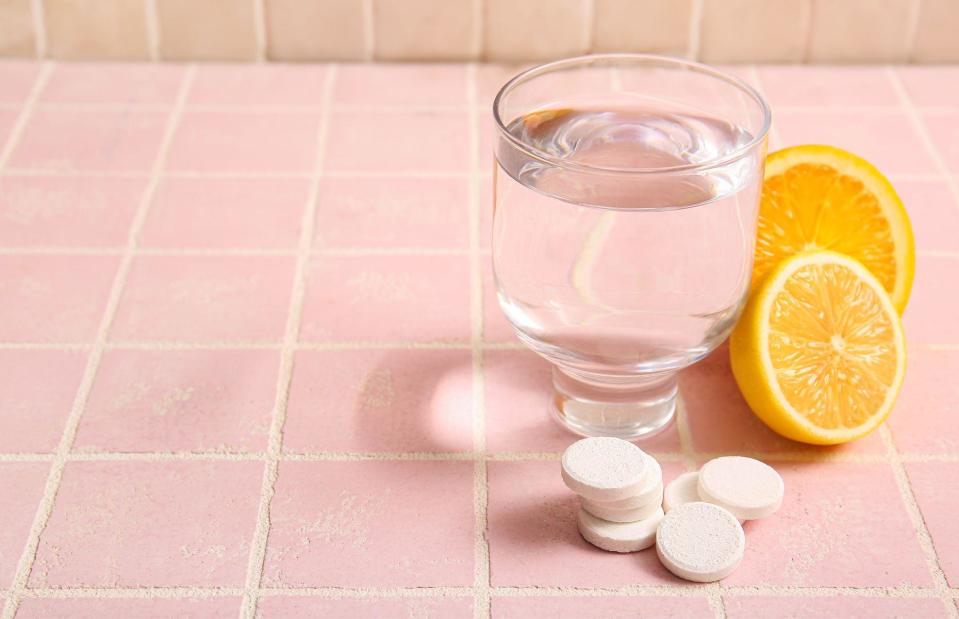
Pixel-Shot/Shutterstock
This nutrient became hot property during the COVID-19 pandemic, when its role in fighting infection and speeding recovery saw people scramble for supplements to deliver mega-doses. "It's an essential vitamin for the body that we can't create ourselves," says VJ. "So, if you're not getting it from your diet, that could be an issue. However, our bodies will excrete any excess within a few hours." That's right – those mega-doses can leave our bodies as expensive urine.
Vitamin C: a natural option
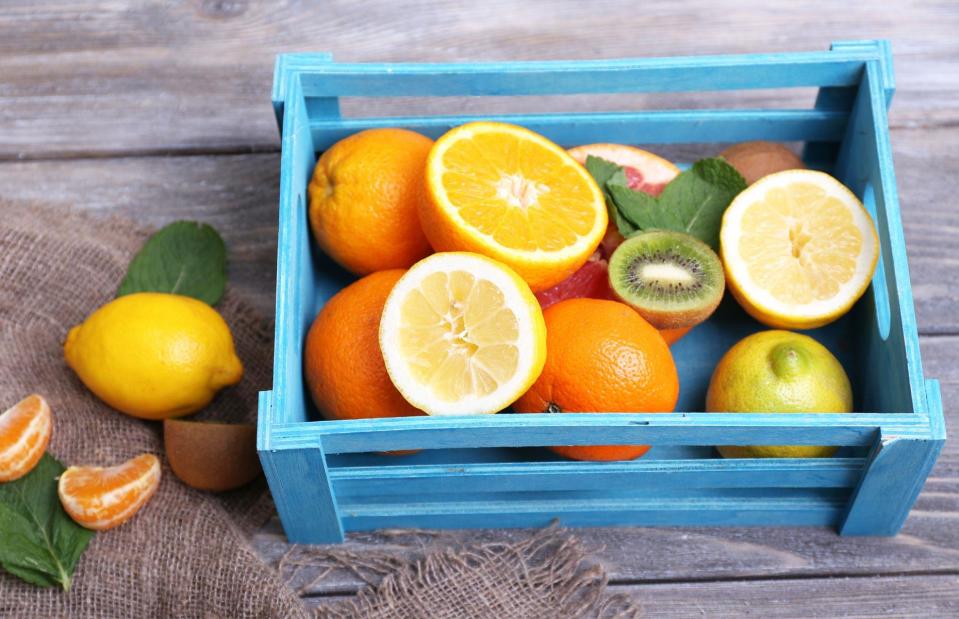
Africa Studio/Shutterstock
There are so many easy and delicious ways to get our daily dose of vitamin C, though the best inevitably involves a vegetable some struggle with. "Broccoli is a great source," says VJ. "Being a cruciferous vegetable, it'll support other functions in your body, like your detox pathways. Red pepper is another good one; it's lovely added to salads and curries." Meanwhile, citrus fruits are another classic option – think sharp and sour lemons, limes, oranges and grapefruits. "All these natural sources have the added benefit of contributing other nutrients to our diets, too," VJ adds.
Now discover 25 healthy eating habits from around the world we should all borrow


